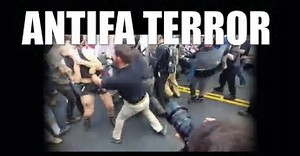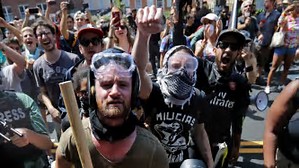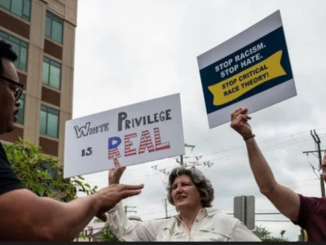

(Lawsuit is aimed at white patriots who went to orderly, peacefully and with a permit upheld by a federal judge to protest the removal of a monument. They weren’t allowed to speak or hold a rally as they were ambushed and violently attacked by anti-whites. This lawsuits, if won, will set a dangerous precedent. It will allow violent terrorists to attack any peaceful group (whether that group is protesting the removal of a statue, an abortion clinic, gay marriage, etc.) and then claim they were incited to attack the second any Christian/patriot acts in self-defense. This lawsuit aims to make self-defense an act of inciting violence) AltRightTV
Heim and Ann Marimow, The Washington Post
{snip}
Eleven residents injured in August during violence that sprang from a planned rally by white nationalists in Charlottesville are suing the supremacists, asking for monetary damages and a ban on similar gatherings.
The lawsuit, filed Thursday morning in federal court in Charlottesville, cites laws enacted during Reconstruction to counter intimidation of blacks in the South and more recent cases targeting antiabortion activists.
The complaint accuses Unite the Right rally leaders and organizers—including white nationalists Richard Spencer, Jason Kessler and Matthew Heimbach—of violating state and federal civil rights laws by creating a menacing environment and inciting violence against people based on their race, religion and ethnicity.
The Ku Klux Klan, Vanguard America, the Nationalist Front and the League of the South, all of which support white nationalist or supremacist aims and took part in the rally, are among the three dozen individuals and organizations named in the 113-page complaint.
{snip}
The lawsuit is funded by a new nonprofit, Integrity First for America, that is aimed primarily at bringing legal challenges to President Trump’s businesses. On its website, it says Integrity First “intervenes when political leaders profit off their positions of power or abandon our country’s commitment to civil rights and equal justice for all.”
{snip}
The Charlottesville complaint was inspired in part by an Oregon case from the late 1990s in which a group of doctors successfully sued antiabortion activists over a website that targeted doctors who perform abortions. The website did not explicitly threaten violence against the doctors, but listed their names, photos, addresses and license plate numbers.
The lawsuit came at a time when several people working at abortion clinics around the country were killed.
A federal jury ordered the creators of the site to pay more than $100 million to Planned Parenthood and the doctors, an amount reduced on appeal.
{snip}
“You can say the most horrible things and cause serious emotional distress, and as outrageous and offensive as it is, the First Amendment will protect you,” said John Culhane, who teaches constitutional law at Widener University Delaware Law School.
That protection ends, though, if you provoke an “imminent” act of violence, he said. And even though it’s often a tough case to make, Culhane said counterprotesters in Charlottesville were physically attacked and “the action we feared would happen did happen. That’s pretty powerful.”
{snip}
Martin London, one of the attorneys who successfully represented the physicians in the Oregon abortion case, said the challenge in the Virginia case may be showing that the language used was likely to spur a violent reaction.
The courts, he said, “have drawn a very fine and ever-changing line when it comes to incitement speech. It’s a very tough test.”


